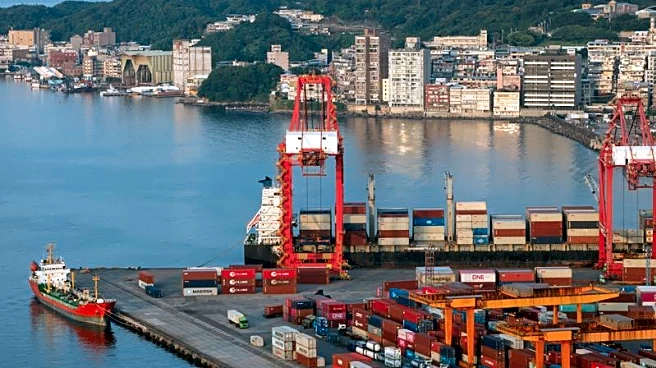What's Happening?
Southeast Asia is currently experiencing severe flooding due to unprecedented rainfall, particularly affecting Thailand, Vietnam, and Malaysia. In Thailand, the city of Hat Yai has recorded its heaviest rainfall in 300 years, leading to significant flooding that
has resulted in at least 33 deaths. The Thai military has been mobilized to provide relief, deploying ships and helicopters to assist in rescue operations. In Vietnam, the death toll has reached 98, while Malaysia has seen over 19,000 people evacuated from their homes. The floods have affected over 2 million people in Thailand alone, with many residents stranded and awaiting rescue.
Why It's Important?
The flooding in Southeast Asia highlights the vulnerability of the region to extreme weather events, which are becoming more frequent and severe. This situation underscores the urgent need for improved infrastructure and disaster preparedness to mitigate the impact of such natural disasters. The economic and social implications are significant, as the floods disrupt daily life, displace thousands, and strain government resources. The international community may need to provide support to these countries as they deal with the aftermath and work towards recovery.
What's Next?
The Thai military is preparing to dispatch additional resources, including an aircraft carrier that could serve as a floating hospital if necessary. Relief efforts are ongoing, with boats, trucks, and jet skis being used to evacuate residents. The Thai government has declared disaster zones in affected areas to expedite relief funding. As the situation develops, international aid and cooperation may become necessary to support recovery efforts and address the long-term impacts of the flooding.
Beyond the Headlines
The floods in Southeast Asia may prompt a reevaluation of regional climate policies and disaster management strategies. The increasing frequency of such events could lead to greater emphasis on sustainable development and climate resilience. Additionally, the humanitarian response to the crisis may influence future international cooperation in disaster relief and climate change mitigation.
















